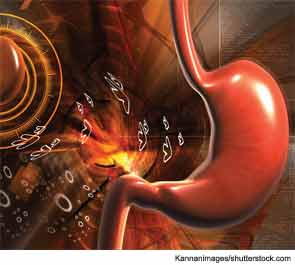Resolving the problem of how to treat LPR is not easy, and the philosophy on appropriate approaches will probably develop over the next few years. However, without good evidence-based data, finding clear answers will likely take longer than that.
Some Laryngopharyngeal Reflux Resists PPI Treatment
by Jill U. Adams •
You Might Also Like:
- Laryngopharyngeal Reflux Gaining Recognition as Distinct Disorder, Paving the Way for Research and Treatment
- Laryngologists v. Non-Laryngologist Treatment of Laryngopharyngeal Reflux
- Experts Delve into Treatment Options for Laryngopharyngeal Reflux
- High BMI a Significant Indicator of PPI Weaning Failure

Leave a Reply